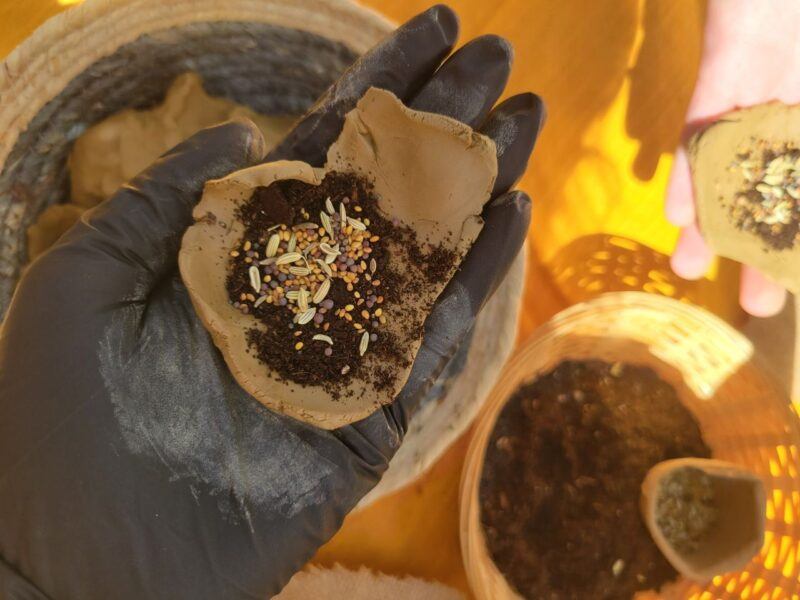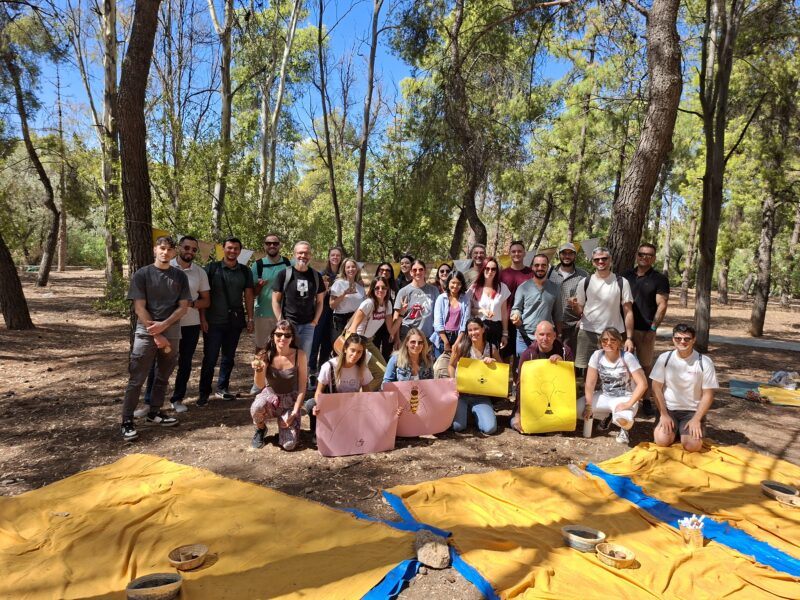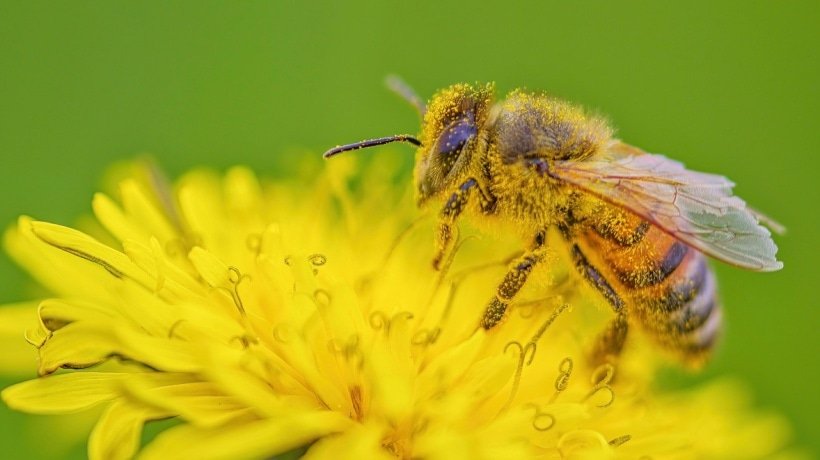Supporting Causes That Matter: eLI Visits The Bee Camp
September 19 was a special day in the eLearning Industry calendar. As part of our company's corporate social responsibility (CSR) program and in anticipation of eLI Day 2025, we all gathered for a special cause. This year's eLI Day not only marks the lucky 13th anniversary of eLearning Industry but also represents another year of collective efforts to maintain productivity, camaraderie, and social responsibility.
For these reasons and more, we spent a morning with The Bee Camp, the first nonprofit organization in Greece created to protect and raise awareness about bees and other urban pollinators. Their vision is to help transform cities into a greener, blooming haven that is welcoming to our hard-working friends. And considering that eLI's mascot is the bee, we found this cause very close to our hearts.
Read on to discover more about The Bee Camp, our day with them, and how we can make our cities a better place for precious pollinators such as bees.
Why Are Bees So Important?
Apart from being our company's logo, there are many more reasons that make bees so important. But before we get into that, let's define what we mean when we refer to "bees." Most people associate this term with the honeybee, the familiar black-and-yellow bee that produces honey. However, there are over 20,000 species of bees worldwide, with about 1150 found in Greece alone. The honeybee is one of the few bee species that live in social hives, as almost 90% of bee species lead solitary lives, establishing their own nests.
Whether they live alone or in colonies, all bee species are vital for our planet, as they perform the invaluable task of pollination. Pollination is the process of transferring pollen from the anther (male part of the flower) to the stigma (female part of a flower) of a plant of the same species, allowing the fertilization and reproduction of the plant. We can attribute as much as one-third of all the world's food and three-fourths of flowering plants to this process, which bees and other animals perform instinctively.
The expanding urban environment, the use of pesticides, climate change, and the prevalence of monocultured crops are only a few of the risks bees and other pollinators face on a daily basis. These challenges threaten the survival of many bee species, particularly wild species that don't live in honeybee colonies. The extinction of bees could cause a catastrophic chain reaction, leading to food insecurity, ecosystem collapse, and significant economic consequences.
What Does The Bee Camp Do?
These reasons and many more pushed Aggelina Kanellopoulou to found The Bee Camp back in 2018. The team consists of six young women with diverse backgrounds, united by their desire to make a difference by making cities greener and more bee-friendly. They achieve this through workshops, educational activities, and awareness campaigns for children and adults, as well as conservation and greening actions. One of their initiatives includes bee spots, portable safe havens for bees and other pollinators that contain easy-to-grow, pollinator-friendly plants. These bee spots connect urban green spaces to create a "bee path" across Athens, offering water, food, and shelter to these fragile animals.
Our Visit
On the sunny morning of September 19, the eLI team was welcomed at Papagou Park by Anthi and Lilian from The Bee Camp. We started our conversation by defining what makes a bee, realizing that there are many more species than the common honeybee and many more visual forms other than the typical black and yellow. Once we started talking about the societies that bees form and how they succeed in their survival, it was easy to understand just how much we can learn from them. Bees are an excellent example of what teamwork and collaboration can achieve, making the world a better place one flight at a time.
Most importantly, we learned how we can help them continue their work by making their environment a little greener. We made "seed bombs," enclosing fast-growing seeds in natural clay, to plant in our gardens and balconies or simply place in empty lots in our neighborhoods. When these seeds grow, they will add to the green spaces in the city, becoming a source of pollen and nectar and making the brutal urban environment a friendlier place. So far, The Bee Camp has created and spread over 41,000 seed bombs.

The Bee Camp: "Seed bombs" in the making
4 Ways To Promote Bee-Friendly Cities
Make It Green
Just as we did during our visit with The Bee Camp, you too can take measures to make the world a greener place. Plant flowers on your balcony, roof, garden, and empty lots that may exist in your neighborhood. Choose plants that will bloom early in the spring and all through the summer, to increase food sources for bees. If you have a lawn, try mowing less frequently to allow grass and windflowers to grow, providing diversity and nesting options.
Create Homes For Bees
Bees, especially those leading solitary lives, often struggle to find shelter in the city. Leaving a few cut logs in your garden, dead stems, and undisturbed ground are all great nesting options for bees. If this isn't an option, you can install small "bee houses" on your balcony, which will offer bees a much-needed break, shelter, and drink of water as they make their way around the city.
Stay Away From Pesticides
If you are growing food or plants in your garden or balcony, make sure not to use synthetic pesticides and herbicides. Not only will they leave residue on the fruit and vegetables you consume, but they will also severely damage bee populations. It is possible to create a sustainable and balanced plant ecosystem by using natural fertilizers and employing companion planting.
Educate Yourself And Spread The Word
The survival of bees depends on us gathering knowledge and sharing it with the world. Explore which species are found in your area, how they live, and which plants would be more beneficial to them. This knowledge is easily accessible through scientific papers, workshops, webinars, and organizations such as The Bee Camp. Then, spread the word within your community to motivate more people to plant flowers and create nesting spaces for bees.

The eLI Team
Conclusion
As another eLI Day is coming to an end, we stay committed to our values of learning more about how to help the community and make the world a better place. Our social responsibility activity with The Bee Camp reminded us that every action, no matter how small, can make a great impact in our world. The bee, a seemingly small and insignificant member of our planet, holds incredible power, and its extinction would have dire consequences.
If you want to know more about the significance of pollination and supporting the bee population, make sure to check The Bee Camp website and support their cause by making a donation or spreading awareness.








